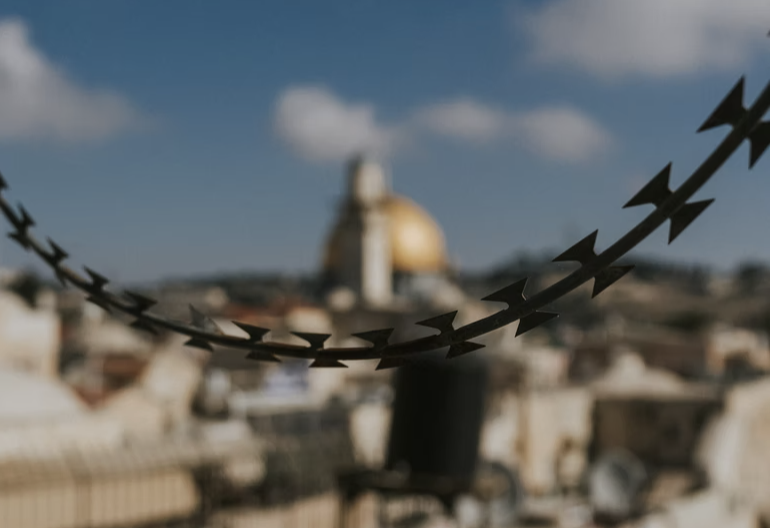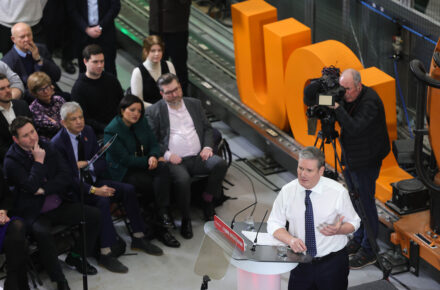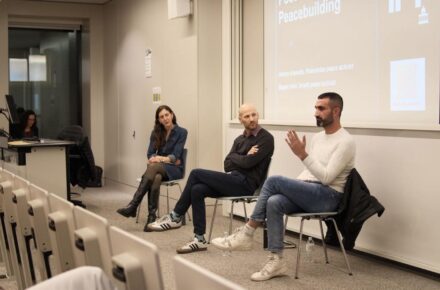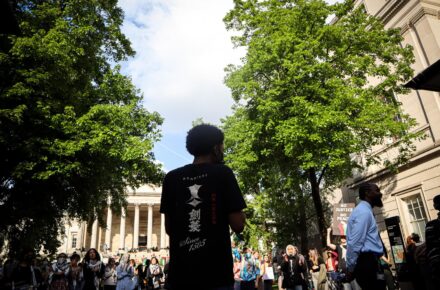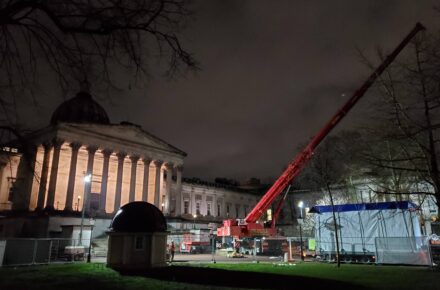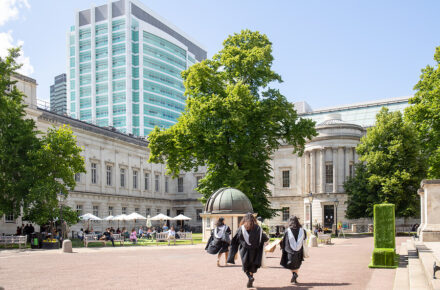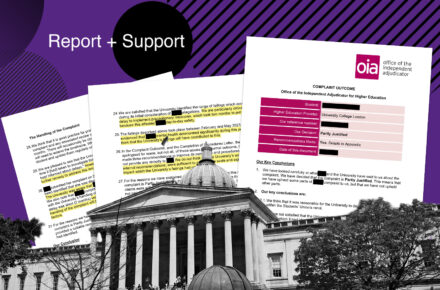In December 2012, the UCL Students’ Union (SU) voted to take steps to cease UCL’s complicity with the occupation of the West Bank, recognised internationally as Palestinian territory yet controlled by Israeli authorities. Later, in March 2016, the SU voted to support ‘Boycott, Divestment, and Sanctions’, a movement protesting trade with illegal West Bank settlements. Most recently, in May 2021, the Union released a statement condemning Israel’s attacks on Gaza. But despite students’ consistent support for the Palestinian struggle, UCL’s financial decisions and affiliations render the institution indirectly complicit in human rights abuses not just in Palestine, but elsewhere in the Middle East.
According to the office of the Provost, UCL invests £1.5 million in HSBC, a banking multinational responsible for investing in weapons companies such as Raytheon and BAE Systems. These corporations supply the arms that have been wielded against civilians by both Israeli forces in Palestine and the western-backed coalition in the war in Yemen. As HSBC gains from these investments, so does UCL.
Yet, as UCL’s Media Relations Team said:
“In regards UCL’s investment in HSBC (£1.5m) and all other investments, UCL’s Policy for Socially Responsible Investment states that the university will adopt investment strategies that seek to minimise and ideally eliminate irresponsible corporate behaviour, including environmental degradation, armament sales to military regimes, human rights violations, institutionalisation of poverty through discriminatory market practices, racial/sexual discrimination, and tobacco production and manufacture”.
They went on to state: “We are confident that all our investments are in line with these commitments”.
However, it is difficult to discern how the commitment to human rights is being upheld.
Aside from the university indirectly profiting from violence against civilians, a more overt relationship also exists between UCL and arms companies. Indeed, a statement by a BAE Systems representative sat above the sponsors list for the Centre for Ethics and Law. It read:
“The UCL Centre for Ethics and Law is an innovative initiative allowing academia and business to meet and discuss what ethics actually means in the business environment. The results of that analysis will lead the debate on ethics both on a business and on a personal level going forward.” – Joanna Talbot, Chief Counsel, Compliance and Regulation
UCL’s Centre for Ethics and Law purportedly “organises a programme of events for engaging with and challenging business and professional approaches to ethics.” But the Centre’s funding and endorsement by a business supplying weapons for war crimes suggests a potentially dangerous conflict of interest.
UCL’s Centre for Ethics and Law is an internationally-respected body whose work on human rights and transnational corporations has been cited by the United Nations (UN). The fact that a corporation implicated in war crimes was, and may remain, the top sponsor of research used to guide UN human rights policy raises a multitude of serious ethical questions.
Some UCL students have attempted to address this matter. In an issue posted on Unitu, a platform where students can communicate concerns and suggestions to staff, they requested a statement from UCL explaining their investment and sponsorship decisions involving BAE Systems. A member of staff responded saying “The Students’ Union is probably best placed to help you with your campaign”. Soon after, the Centre for Ethics and Law removed its sponsors list from public visibility, offering the explanation that they have no sponsors as of July 2021. They have been contacted and requested to provide further information.
According to the UCL Media Relations Team, “The Centre for Ethics and Law at UCL no longer has any sponsorship agreements in place, so does not receive any funding from sponsors.”
Of course, one might wonder why BAE Systems was determined to be an appropriate sponsor for the Centre for Ethics and Law in the first place. It is also worth noting that although the ICC report implicating BAE Systems in war crimes in Yemen was released in December 2019, the sponsorship information was only removed from UCL’s website in August 2021, 20 months later.
With regards to other funding the university receives, a UCL spokesperson added: “Funding and sponsorship from external bodies are essential if we are to carry out vital research, helping us solve some of the most pressing challenges facing the world today, and ensuring excellence in both our teaching and student experience.
“We are committed to the having highest standards of research integrity across all of our activities and carefully consider all opportunities to ensure they are in line with our research funding ethics policy and consistent with our mission and values.
“All donations, grants and sponsorship are subject to regular review and our research is entirely independent and academically driven. We consider any donation or grant in the light of all the circumstances known at the time it is offered.”
In addition to the ethics department, UCL’s camaraderie with weapons manufacturers appears to spill into other sectors. For example, the majority of the Industrial Advisory Board for UCL’s Centre for Systems Engineering are employees of weapons companies that have been implicated in the 2019 ICC complaint regarding war crimes in Yemen. This diverse selection of individuals includes employees of Leonardo, Airbus Defence and Space, BAE Systems, and MBDA.
UCL’s apparent cooperation with, and indirect investment in, defence companies complicit in war crimes in the Middle East has become a significant concern for its sizable Arab student body. According to the student population statistics for the academic year 2020/2021, 1055 UCL students identify as Arab. Their issue with UCL’s links to weapons companies was recently expressed in a petition shared by the Arab and North African Society calling on the university to divest from Israeli war crimes. These students have been awaiting a response to their concerns for months, to no avail.
Demilitarise UCL, a “student activist group concerned about UCL’s links with the arms trade,” responded to these latest revelations.
“That a university like UCL – who prides itself on being progressive and disruptive – should still be so heavily implicated in the arms trade is unforgivable.
We know that many of the students at UCL have been horrified to see the news coming from places like Palestine, Yemen and Afghanistan this year – especially those that have personal connections. For them to know that the university is not only receiving and sending money directly to the companies which have profited so heavily from the destruction, but are also actively partnering with them in ongoing research, just goes to show how out of touch our university really is with its own self-proclaimed values and the concerns of its students.”
When questioned about UCL’s ties to weapons companies implicated in war crimes and human rights abuses, the office of the Provost maintained that “we are confident that our investments are in line with these [UCL ethical investment policy] commitments.” This exact response also appears under the ‘Investments in companies linked with Israel’ subsection of UCL’s ‘Freedom of Information’ page. Yet, the specific issues of BAE Systems’ sponsorship and UCL’s apparent connection to war crimes in Yemen have been neglected entirely. Instead, the only issue acknowledged on the page is that of UCL’s HSBC investment.
The Investments Committee secretary has been contacted along with the SU campaign manager and the Provost in an ongoing attempt to seek an explanation for UCL’s investments and sponsors. The Investments Committee has not yet responded whilst the SU has drafted a policy proposal titled “Lobby to end UCL’s relationship with arms companies,” due to be presented and discussed online on October 14th at 6pm.
Whilst the SU works to correct UCL’s problematic ties to arms companies, many questions remain. How did a relationship between a weapons company and an ethics centre come to be and why was it flaunted on the centre’s website for so long? Why is the systems engineering department still collaborating with members of companies implicated in war crimes? Is this ongoing involvement with human rights abuses the result of negligence and ineptitude or is UCL deliberately turning a blind eye to violence in the Middle East? And, perhaps most importantly, why is student intervention required in what is a blatant conflict of interest and moral failure? UCL must now listen to its students and end all ties to arms companies.
Jenna Ali
This appeared in CG Issue 78

